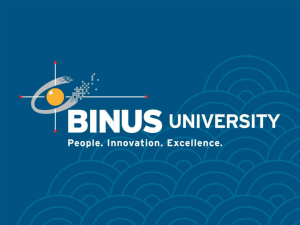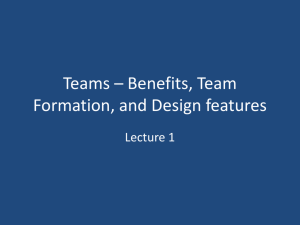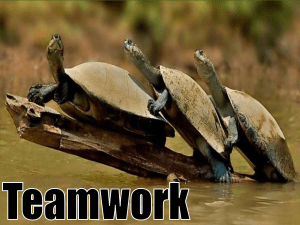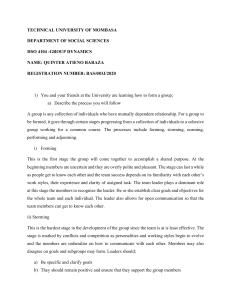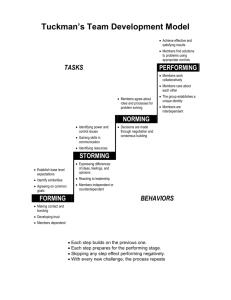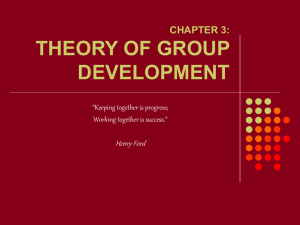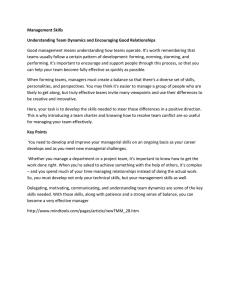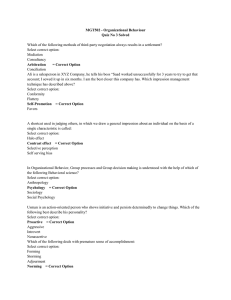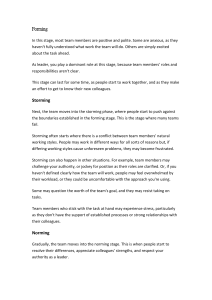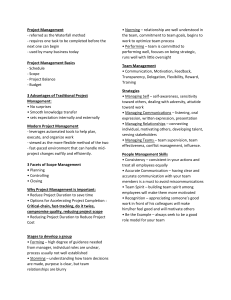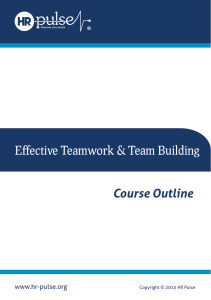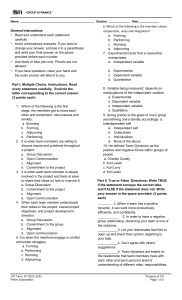Organizational Behavior: Individual & Group Dynamics
advertisement
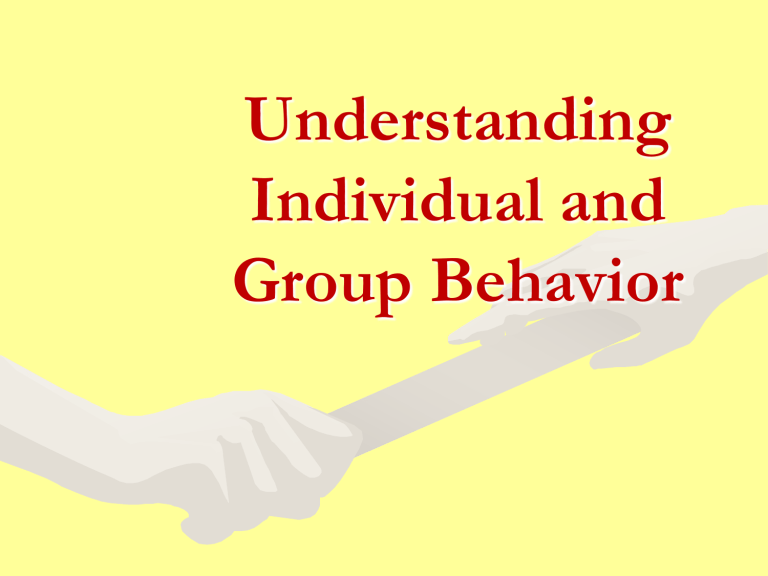
Understanding Individual and Group Behavior What is Organizational Behavior? • Organizational Behavior is the study of human behavior in the workplace, the interaction between people and the organization itself with the intent to understand, predict and control human behavior. 2 Why Study Organizational Behavior Understand organizational events Organizational Behavior Research Predict organizational events Influence organizational events 3 The Study of Organizational Behavior Psychology Individual Sociology Social Psychology Group Anthropology Organization Political Science Study of Organizational Behavior Model of Individual Behavior Role Perceptions Motivation Individual Behavior and Performance Ability Situational Contingencies 5 Individual Differences Influencing Work Behavior Hereditary and Diversity Factors Ability and Skills Personality Perception 6 Attitudes Group Small number of people with complementary skills who are committed to a common purpose, set of performance goals, and an approach for which they hold themselves mutually accountable Formal group Informal group Virtual group 7 The Group as an Open System INPUTS THROUGHPUTS OUTPUTS Tasks GROUP PROCESS Task performance Goals, rewards, resources Technology Membership diversity The way members work together Member satisfaction Team viability Group size Role of the LEADER: To coach, mentor, and appraise performance 8 A good leader must understand the drivers and barriers to high group performance… DRIVERS Interesting work Recognition and accomplishment Experienced management Leadership Qualified team personnel Professional growth BARRIERS Unclear objectives Insufficient resources Power struggle and conflict Unsupportive management Poor job security Shifting goals and securities Characteristics Of HighPerformance Groups 9 Five Stages of Group Development Forming Getting to know each other Adjourning Disbanding and celebrating accomplishments Performing Maturation in relationships and task performance Storming Dealing with tensions and defining group tasks Norming Building relationships and working together 10 Stages of Team Development Relationship Behavior Performing Norming Storming Forming Task Behavior 11 Building a Great Team 1. Conduct regular project meetings with a focused agenda and timetable 2. Establish a team identity and create a shared vision. 3. Facilitate group decisions by identifying underlying problems, generating alternate solutions, fostering a consensus and followingup on solution implementation. 4. Accepting, managing and encouraging functional conflict. 12
